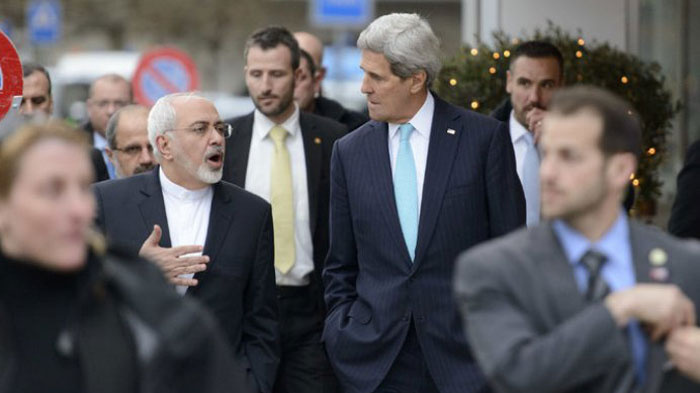Neck and Neck?

By: Hossein Shari’atmadari
It is rightly said that while Vienna deal is not a “perfect deal” and there is a perennial gap between the deal and the demands of the Islamic Republic, while it also includes some positive aspects. Therefore, the adoption of the deal would not thoroughly be against our national interests. In return, Iran has conceded and gained in the deal, as in any other deal. This line of argument is supported by JCPOA supporters, especially Rouhani’s government. The point here is that what we have so far conceded would not only destroy our country’s nuclear activities, but also endanger the foundations of the regime.
A brief look at the deal and the UNSC 2231, issued as a guarantee of the Vienna deal, would clarify this bitter reality. On top of that, the enemy, i.e. the USA, is dreaming of regime change through the terms of the deal and is publicly talking about it. This American view, however, has not been responded yet by the deal supporters; instead, the domestic critics of the deal have been under a heavy wave of accusations. For instance, President Rouhani defended Vienna deal in [his visit to the western city of] Hamedan and stated that “after 23 months of diplomatic struggle and negotiation, we have been able to remove the ominous shadow of war and revive the real security for Iran”. He did not explain that if various limits against Iran, e.g. monitoring Iran’s missile industry and access to military sites that would weaken Iran’s defensive power, would remove the ominous shadow of war, or an obstacle against the enemy’s invasion; an enemy who explicitly states that seeking the regime overthrow in Iran has been one of its strategic goals which they are still pursuing.
According to Imam Khomeini’s and the Supreme Leader’s common view, the US would have not delayed its invasion had it had the military ability to attack Iran. The US inability to attack Iran has been repeatedly mentioned in reports by American strategic centers, and US officials have confessed it in the recent days.
While it is beyond the scope of this brief note, suffice is to say that Iran’s adoption of Vienna deal will not prevent any invasion; rather, it may accelerate it. The important point here is whether positive aspects of the JCPOA would justify its adoption. The possible positive aspects of Vienna deal are inseparable of its negative aspects. The deal is a mutual agreement that, with regards to the 1969 Vienna Convention Law of treaties, no parties can reserve only one or some terms of the agreement. The recognition of reservation would be acceptable just in multi-partite international agreements, but in bi-partite agreements, like the Vienna deal, where P5+1 (five UN Security Council permanent members plus Germany) have been regarded as a single entity vis-à-vis Iran, each party has the right to say “yes” or “no” to the agreement, which means they can accept either all or no terms of the agreement in its entirety.
In brief, no deal supporters deny these negative terms in the deal and they have accepted that some terms, along with UN Security Council Resolution 2231, would create critical challenges for the Islamic Republic of Iran. Nonetheless, some supporters of the deal think that reservation would prevent the negative terms of the deal, which is certainly impossible.
* This piece was originally published in Kayhan Daily. Kayhan Daily has been a strong critic of the nuclear talks between Iran and P5+1 since the new round of negotiations started in 2013.
Translated by: Parisa Farhadi

